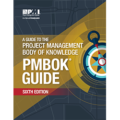
Artificial Intelligence is the latest buzz word. In today’s rapidly evolving technological landscape, AI has the potential to revolutionize project management, offering project managers powerful tools to streamline processes, optimize costs, and ensure stakeholder satisfaction.
AI’s role extends from predictive analytics for better decision-making to automation in routine tasks and real-time feedback to improve stakeholder engagement. As a result, project managers can complete projects quicker and at a lower cost, all while offering an unprecedented level of stakeholder satisfaction.
In this article, we will explore how project managers can leverage AI to achieve faster and more cost-effective projects, along with tools and strategies to keep stakeholders engaged and content.
1. Enhancing Project Planning with Predictive Analytics
One of the biggest challenges project managers face is uncertainty in project timelines, budgets, and outcomes. AI-driven predictive analytics can help overcome these uncertainties by analyzing historical data and identifying patterns that improve the accuracy of project planning.
Key Benefits:
- Faster Completion: AI can predict potential delays by analyzing past project data, allowing project managers to preemptively address these issues.
- Cost Optimization: By forecasting budget overruns based on similar project data, project managers can adjust resources to avoid scope creep.
- Improved Stakeholder Satisfaction: With more accurate timelines and budgets, stakeholders are less likely to experience frustration due to delays or unexpected costs.
For example, AI can analyze data from past projects to predict when certain tasks will likely cause bottlenecks, enabling managers to allocate resources more efficiently and proactively address issues. Tools like Microsoft’s Power BI and Google’s Data Studio, equipped with AI capabilities, help project managers visualize and understand predictive data, making it easier to incorporate into the planning phase.
2. Automating Routine Tasks for Increased Efficiency
Project managers often spend valuable time on repetitive tasks such as data entry, report generation, and status updates. By automating these tasks, AI allows project managers to focus on higher-level strategic activities that drive project success.
Key Benefits:
- Faster Project Completion: Automation reduces time spent on routine administrative tasks, speeding up project workflows.
- Reduced Costs: By minimizing the time team members spend on administrative tasks, project resources are used more effectively.
- Enhanced Stakeholder Engagement: Automation ensures stakeholders receive timely updates, increasing transparency and trust.
AI-powered project management platforms like Monday.com, Asana, and Trello offer built-in automation features that streamline task assignment, scheduling, and notifications. For instance, AI can send automated alerts to team members when a deadline is approaching or a task is overdue, ensuring that everyone stays on track without the need for manual reminders from the project manager.
3. Optimizing Resource Allocation with AI
AI-driven resource management tools help project managers allocate resources efficiently by analyzing project needs and available resources. This ensures that resources are assigned where they are most needed, which can prevent bottlenecks and optimize productivity.
Key Benefits:
- Faster Completion: AI identifies the best available resources for each task, helping teams meet deadlines.
- Lower Costs: By maximizing the productivity of available resources, AI minimizes the need for overtime or additional resources.
- Higher Stakeholder Satisfaction: Optimized resource allocation improves project quality, keeping stakeholders satisfied with the outcome.
Resource management software like Smartsheet and Resource Guru use AI to forecast resource needs, taking into account factors such as employee skill sets, availability, and historical performance data. This allows project managers to avoid resource conflicts, reduce idle time, and ensure that every team member is contributing effectively to the project.
4. Improving Risk Management with AI
One of AI’s most impactful applications in project management is risk management. AI can identify potential risks early by analyzing vast amounts of data from previous projects and current project status. AI can even provide recommendations on how to mitigate these risks before they impact the project.
Key Benefits:
- Quicker Project Adjustments: AI can detect risks early, allowing project managers to make proactive changes and keep the project on track.
- Reduced Risk-Related Costs: Addressing risks early prevents cost overruns associated with reactive problem-solving.
- Stakeholder Confidence: With effective risk management, stakeholders feel reassured that the project is in good hands and less likely to encounter negative surprises.
AI-driven tools like RiskLens and Protecht use machine learning algorithms to assess and quantify risks in real time, suggesting actionable steps to reduce or eliminate potential threats. For example, if a project milestone is at risk due to resource constraints, AI can suggest alternative resource allocations or adjustments to the project timeline to mitigate the issue.
5. Boosting Stakeholder Engagement through AI-Enhanced Communication
Keeping stakeholders informed and engaged throughout the project is crucial for success. AI-driven communication tools help project managers maintain transparency and keep stakeholders updated in real time. AI can also personalize communication, tailoring updates to each stakeholder’s interests and level of involvement.
Key Benefits:
- Timely Updates: AI can automatically generate and send customized reports or alerts based on project progress.
- Reduced Communication Costs: By automating regular updates, project managers can minimize the time spent on communication.
- Stakeholder Satisfaction: Personalized, timely updates ensure stakeholders remain engaged and satisfied with the project’s progress.
For instance, AI-powered tools like Slack, Zoom, and Microsoft Teams can create project summary reports or compile weekly updates for each stakeholder. AI chatbots can also answer stakeholders’ questions, providing real-time responses without adding to the project manager’s workload. This allows stakeholders to feel more involved and reduces the need for constant manual updates.
6. Leveraging AI for Better Decision-Making
AI aids project managers in making data-driven decisions by analyzing vast quantities of data from project performance metrics, past project outcomes, and real-time data feeds. By identifying trends and patterns, AI enables project managers to make better, faster decisions that drive project success.
Key Benefits:
- Quick Decision-Making: AI processes data faster than humans, allowing project managers to make timely decisions that keep the project moving.
- Lower Costs: Better decision-making minimizes costly errors and reduces the likelihood of project delays.
- Stakeholder Confidence: Informed decision-making increases stakeholder confidence in the project’s management, improving their overall satisfaction.
For example, AI algorithms in tools like IBM Watson Analytics or Tableau can identify which project tasks are most likely to encounter issues based on real-time project metrics, enabling project managers to prioritize these tasks and reduce overall project risk.
7. Facilitating Post-Project Analysis and Continuous Improvement
Once a project is completed, AI can help analyze project outcomes and generate insights to improve future projects. By assessing what went well and where issues occurred, AI enables project managers to refine their processes and increase efficiency in future projects.
Key Benefits:
- Faster Learning Cycle: AI’s ability to process data and provide insights quickly enables project managers to implement improvements sooner.
- Cost Savings in Future Projects: Lessons learned from AI-driven post-project analysis can help reduce costs in future projects.
- Increased Stakeholder Satisfaction: Continuous improvement demonstrates a commitment to excellence, building trust with stakeholders for future projects.
Using tools like Jira or Wrike, project managers can analyze metrics such as project timeline adherence, budget performance, and stakeholder feedback. These tools can also highlight patterns across multiple projects, allowing project managers to apply these insights systematically to improve future project outcomes.
Conclusion
AI has become an invaluable asset in the toolkit of modern project managers, enabling them to deliver projects more quickly, efficiently, and with higher levels of stakeholder satisfaction. By integrating AI into project planning, resource allocation, risk management, communication, and decision-making processes, project managers can achieve substantial improvements in project performance and stakeholder engagement.
Embracing AI in project management not only benefits the current project but also sets the stage for continuous improvement, building a foundation for future project success.











Leave a Reply